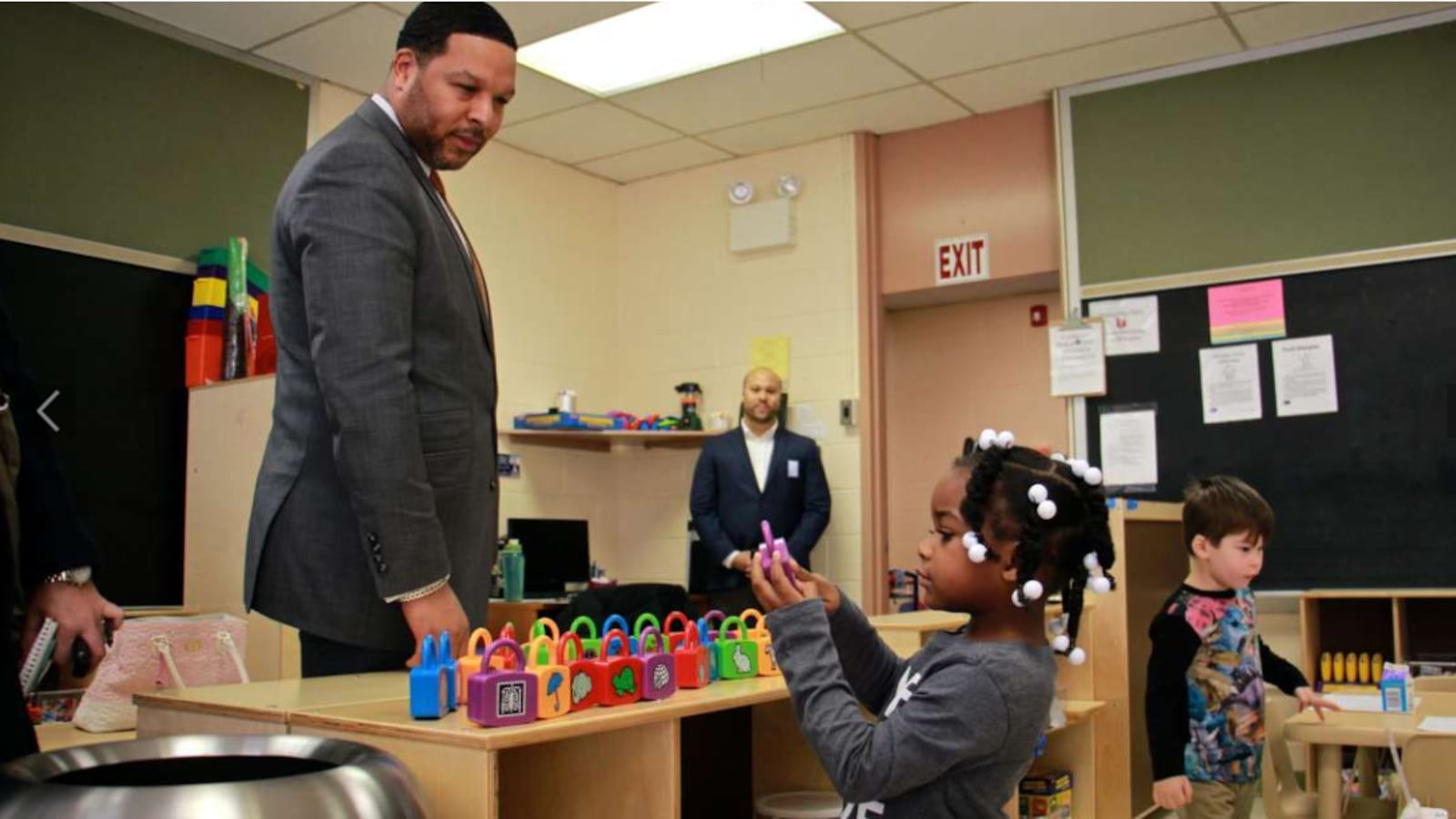This article was originally published in The Notebook. In August 2020, The Notebook became Chalkbeat Philadelphia.
Except for the chilly weather and the television cameras, Wednesday morning at SPIN preschool in Northeast Philadelphia felt like any other first day of school.
Children nervously looped their backpacks on hallway hooks as parents kissed them goodbye. Teachers dashed between little ones overcome with anxiety and others jolted into hyperactivity by the volume of new toys.
It was a joyous, noisy, confusing morning — and it was made possible by the soda-drinking denizens of Philadelphia.
That last part explains the cameras.
The dozens of 3- and 4-year-olds who started at SPIN on Wednesday are part of PHLpreK, Philadelphia’s city-sponsored early childhood program. The initiative started just a year after Mayor Kenney was sworn into office, fulfilling — at least in part — one of his signature campaign promises.
"I just can’t believe that one year ago we were getting started, and here we are today," said Otis Hackney, who heads the Mayor’s Office of Education.
Kenney lobbied City Council to pass a tax on sweetened beverages over the summer, vowing to spend some of the money on a new pre-K program for city children. With the 1.5-cents-per-ounce sweetened beverage tax now in effect, the city can officially fund 2,000 new high-quality pre-K seats. In September, 1,000 more slots will be available, and officials promise 6,500 seats in all by the time the program reaches full scale.
City leaders hope that by providing pre-K access to more students, they can improve kindergarten readiness, alleviate the cost of child care for young families, and ultimately produce young adults who are better prepared for the high-skill jobs of the 21st century.
"Being ready for learning – pre-K really sets the table for that," Hackney said.
SPIN parent Nafesa Bakhteri is now sending her fifth child through pre-K. Her oldest attends Central High School, one of the city’s academic magnet schools, and she credits early childhood education for jump-starting his academic success.
"It does help a lot because it’s the foundation of what they learn," Bakhteri said. While school was closed for winter break, she said, her kids spent entirely too much time playing video games.
Her youngest, 3-year-old Fatima, had grown bored watching television at home. Now that she’s enrolled in pre-K, she can learn with other children, freeing her mother to churn through all the other responsibilities that come with raising a big family.
"It’s so good that my mind is free. She’s in a safe place. She’s learning while I’m doing my housework," said Bakhteri.


